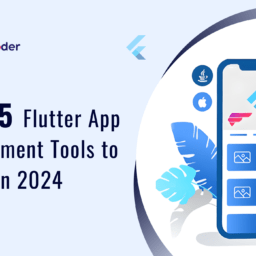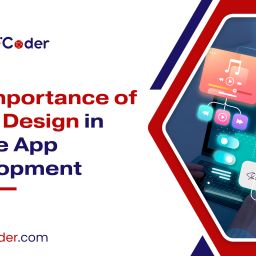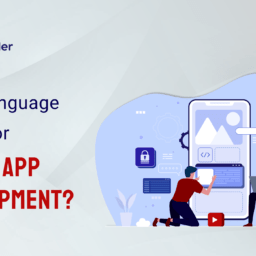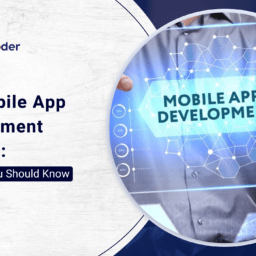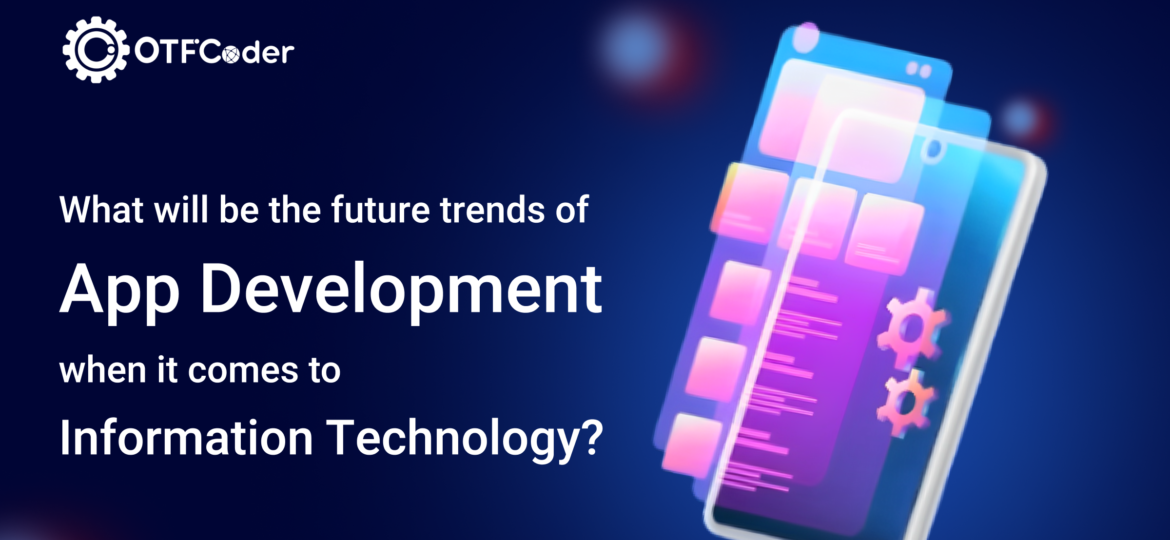
The field of application development is always changing in the fast-paced world of modern information technology. Innovative mobile applications are in high demand due to the growing popularity of smartphones and the internet’s constant expansion. Examining the trends influencing the direction of mobile app development is crucial as we look to the future. The creation of hybrid mobile apps, iOS and Android applications, and hybrid app development are important trends.
Since Android and iOS are the two most popular mobile operating systems, developers are concentrating on making engaging and seamless experiences specifically for each platform. In addition, hybrid mobile app development is becoming more popular. This approach enables the development of apps that work on several platforms with a single codebase. This method simplifies development efforts and is cost-effective.
In order to satisfy users’ changing needs, mobile app developers need to keep up with emerging trends as technology develops. Whether it’s utilizing cross-platform development, utilizing the newest features of iOS and Android, or coming up with innovative hybrid solutions, the future of mobile app development holds exciting opportunities for producing immersive and user-focused experiences.
1. Accepting Cross-Platform Development:
Cross-platform development is becoming more popular as a means of achieving efficiency and cost-effectiveness. Using a single codebase, this method enables developers to create apps that function flawlessly on several platforms, including iOS and Android. With less time and effort, developers can produce high-performing, native-like mobile apps thanks to frameworks like React Native and Flutter.
2. Progressive Web Applications (PWAs):
PWAs have the potential to completely change the mobile app market. These web-based apps give consumers a fast, dependable, and entertaining experience by combining elements of native app and web experiences. PWAs fill the void left by native apps and traditional websites with features like push notifications, installation prompts, and offline accessibility. This makes PWAs an appealing option for companies looking to increase user engagement and reach a larger audience.
3. Integration of the Internet of Things (IoT):
Mobile apps are at the forefront of this revolution in how we interact with technology as a result of the Internet of Things (IoT). Mobile apps that can integrate and control Internet of Things (IoT) devices with ease are in high demand as these devices proliferate in homes, offices, and other settings. Mobile app developers will be essential in leveraging the potential of IoT to provide users with cutting-edge and customized experiences, from industrial IoT solutions to smart home automation.
4. The emergence of Artificial Intelligence (AI) and Machine Learning (ML)
The emergence of Artificial Intelligence (AI) and Machine Learning (ML) technologies is significantly transforming the potential of mobile applications. AI-powered features improve user experiences and increase engagement. Examples of these features include personalized recommendations, predictive analytics, and natural language processing. In order to enable sophisticated functionalities like voice assistants, image recognition, and predictive text input, mobile app developers are integrating AI and ML algorithms. This is opening up new avenues for innovation and market differentiation.
5. Enhanced Security and Privacy Measures:
Mobile app developers are giving strong security measure implementation top priority in order to protect user data, as concerns over data privacy and security breaches continue to grow. Protecting user privacy and security is crucial, and this includes using safe authentication procedures, encrypting data, and adhering to strict laws like the CCPA and GDPR. Furthermore, fingerprint and facial recognition technology advancements are starting to be included as standard features in mobile apps, which strengthens security protocols and increases user confidence.
6. Virtual Reality (VR) and Augmented Reality Experiences:
Virtual reality (VR) and augmented reality (AR) technologies are expanding beyond games and entertainment to provide immersive experiences across a range of industries, such as retail, healthcare, and education. The capabilities of AR and VR are being used by mobile app developers to create immersive and interactive experiences that meld the real and virtual worlds together. The way we interact with mobile applications could be completely changed in the future by AR and VR, whether it’s through immersive training simulations, AR-based navigation apps, or virtual home tours.
7. Blockchain Integration:
The potential for integrating blockchain technology into mobile applications is enormous, as it is upending established paradigms of data management and security. Blockchain-powered mobile apps have the potential to revolutionize a number of industries, from supply chain management solutions to secure digital identities and decentralized finance (DeFi) applications. The intrinsic transparency, immutability, and decentralization of blockchain technology can be leveraged by mobile app developers to build safe, unhackable apps that give users more control over their information and transactions.
8. Edge Computing and 5G Connectivity:
By enabling faster data processing and lower latency, edge computing and 5G connectivity are transforming the infrastructure of mobile applications. Edge computing improves mobile application performance by offloading data processing tasks from centralized servers to edge devices, which leads to faster response times. Mobile app developers can now deliver immersive multimedia experiences, real-time communication, and bandwidth-intensive applications like augmented reality and live streaming with unparalleled efficiency thanks to the advent of 5G networks, which offer lightning-fast speeds and ultra-low latency.
9. Voice-Enabled Applications:
The use of voice technology in mobile applications is growing as it becomes more commonplace in our daily lives. Voice-enabled apps are especially useful for dictation, virtual assistants, and voice search because they use natural language processing and speech recognition to facilitate hands-free interaction. Mobile app developers will need to take voice interfaces into consideration as a crucial part of their applications as voice technology continues to advance and user acceptance rises, providing users with a simple and convenient means of interacting with their devices.
10. Personalization and Contextualization:
In an era of hyper-personalization, mobile app developers are focusing on delivering tailored experiences that cater to individual user preferences and contexts. Developers are able to engage users more deeply with personalized content, recommendations, and notifications by utilizing location-based services, data analytics, and user behavior tracking. The capacity to deliver pertinent and timely information improves user engagement and builds loyalty, whether it be through context-aware notifications in travel apps or personalized product recommendations in e-commerce apps. As technology develops, developing dynamic, adaptive experiences that anticipate and cater to each user’s specific needs will be key to the future of application development.
Conclusion
Innovation, integration, and adaptation to new technologies and changing user needs will define the future of information technology application development. The possibilities are endless and include everything from cross-platform development and progressive web apps to IoT integration, AI and ML, improved security protocols, AR/VR experiences, blockchain integration, and developments in edge computing and 5G connectivity. Mobile app developers have the opportunity to produce engaging, user-centered experiences that will completely change how we interact with mobile applications in the future by embracing these trends and utilizing technology’s transformative power.





